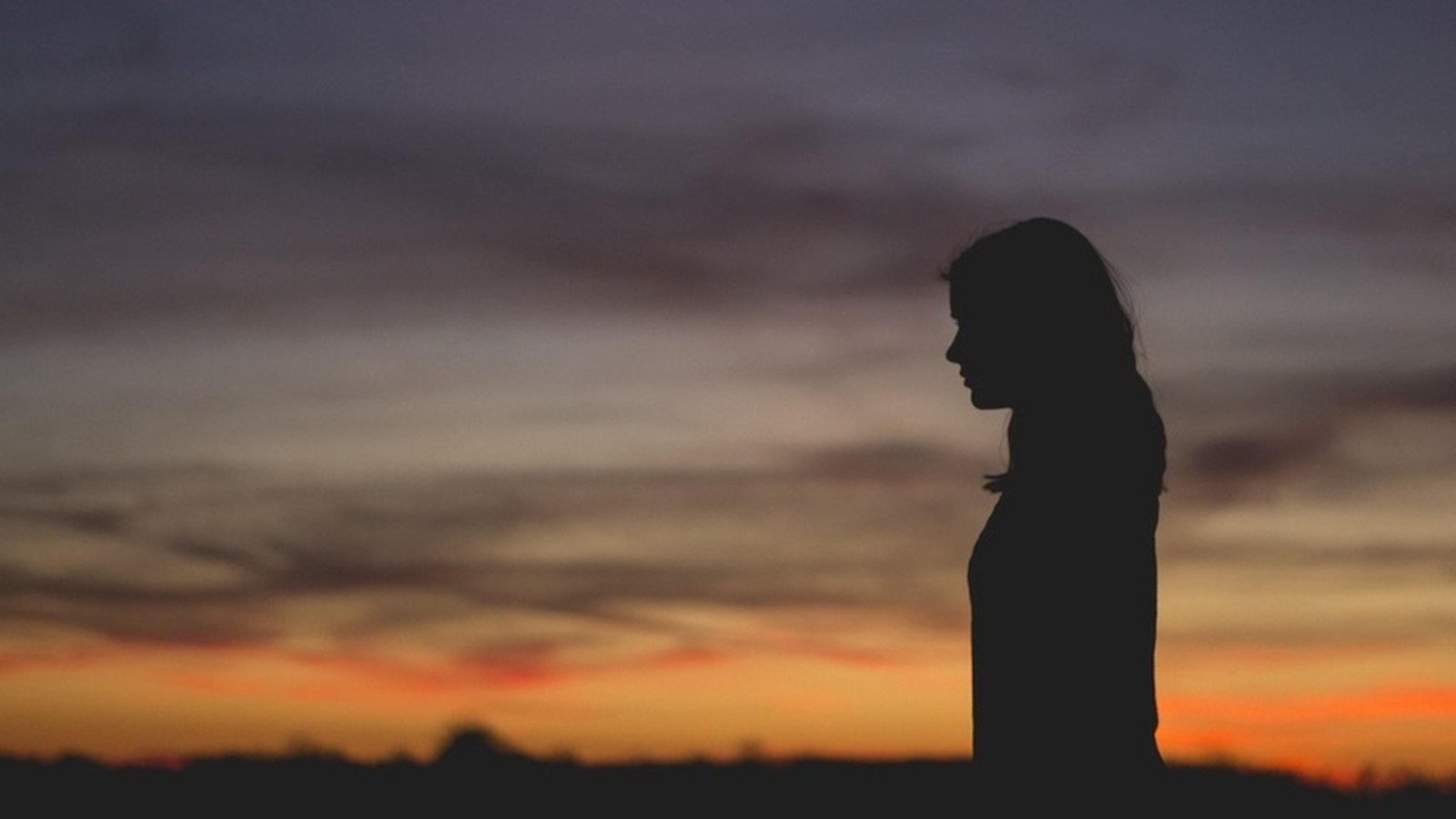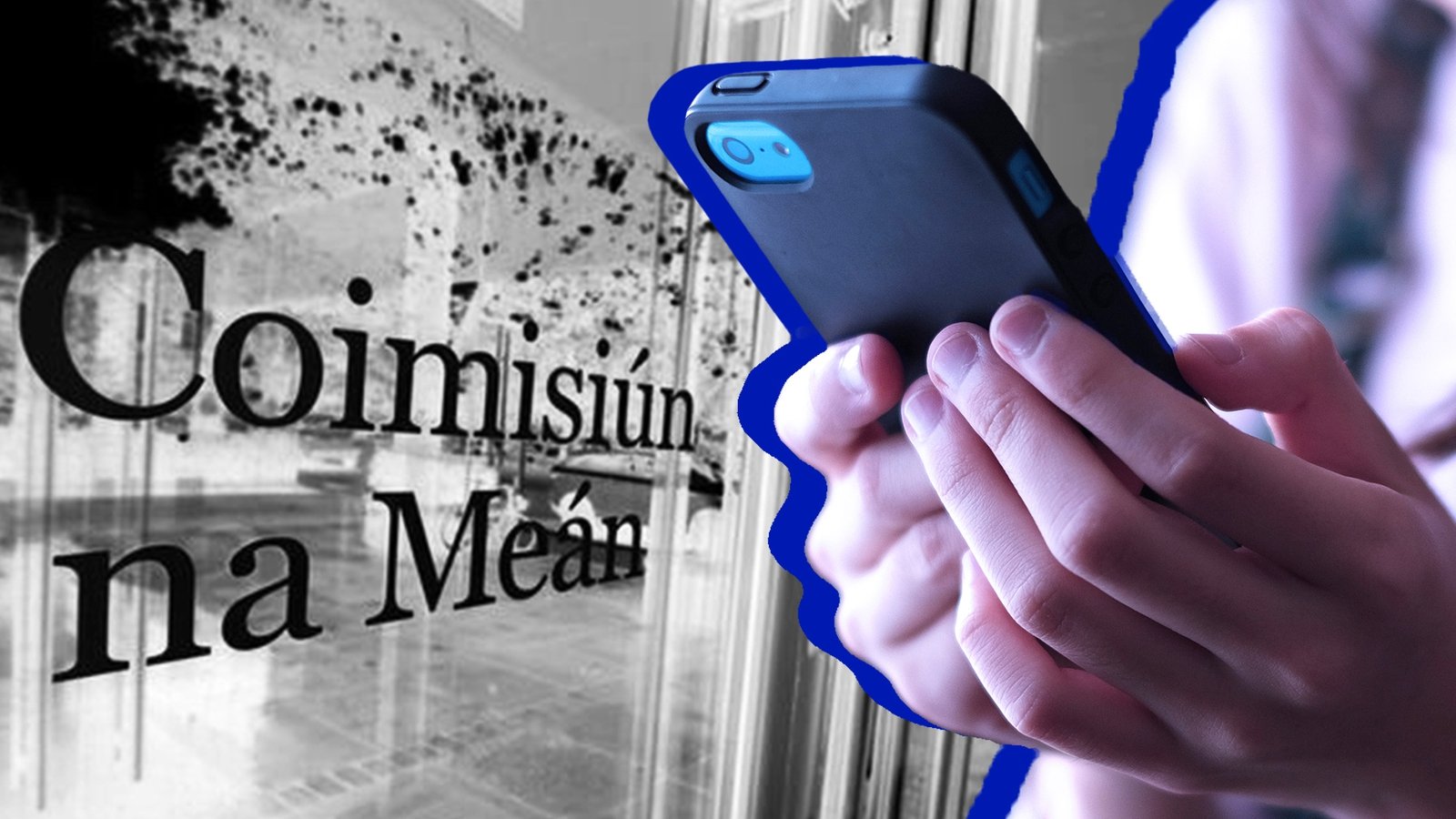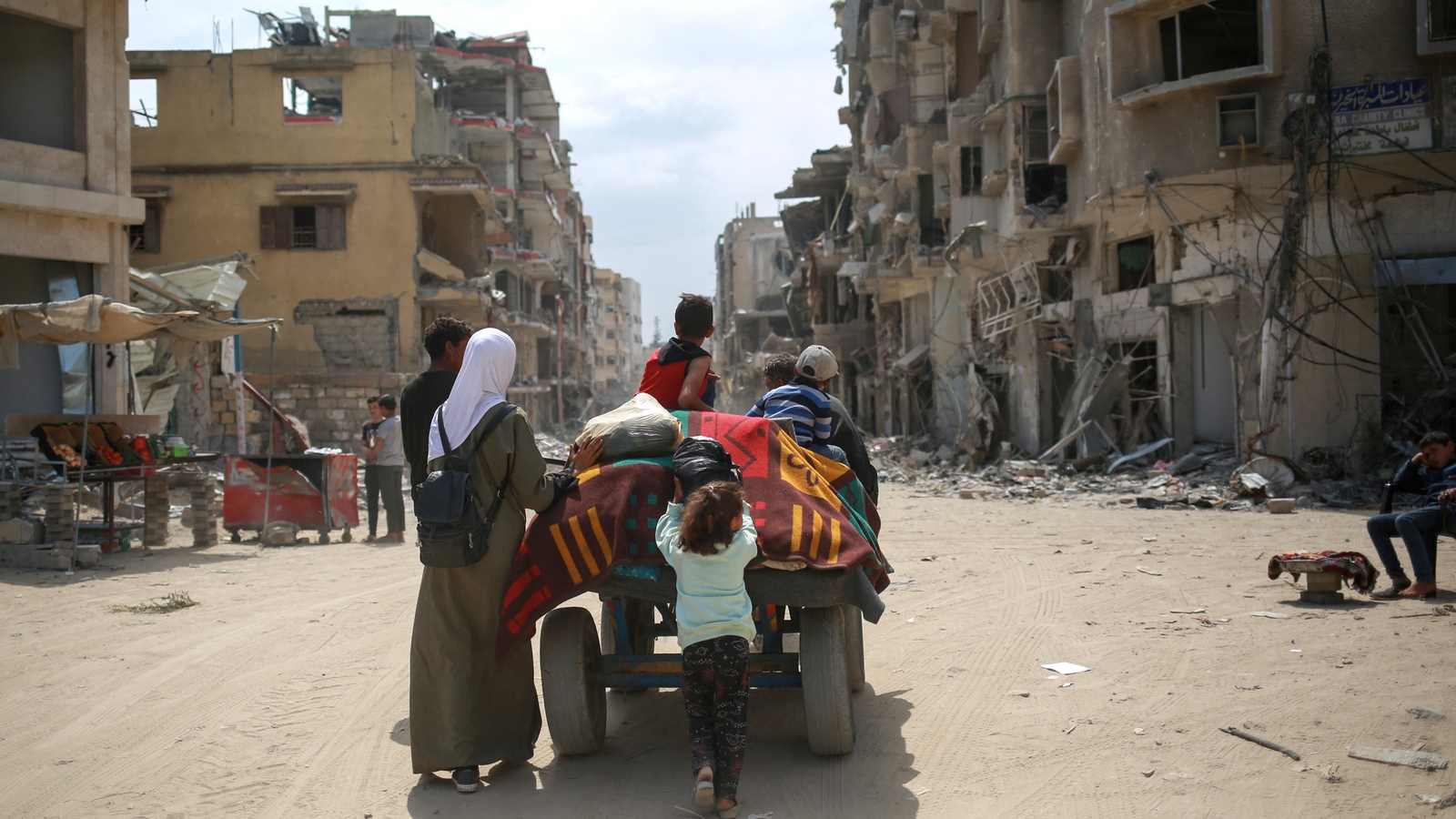What powers does the UN Human Rights Council have?
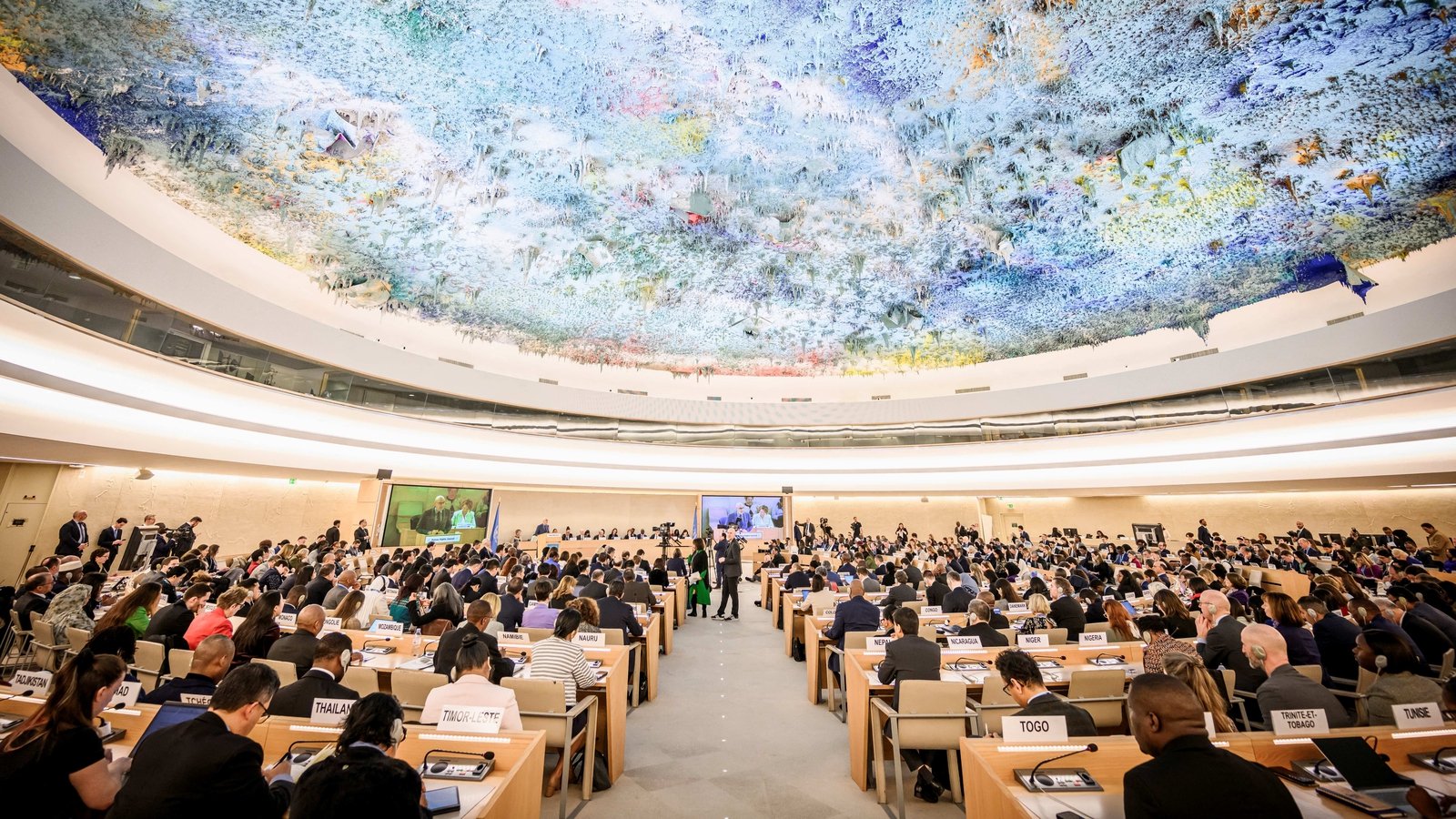
A resolution which calls for an embargo on arms to Israel citing a “plausible risk of genocide” in Gaza will be voted on by the 47 members of the UN Human Rights Council in Geneva.
The resolution was brought forward by Pakistan on behalf of the Organisation of Islamic Cooperation (OIC) and co-sponsored by Bolivia, Cuba and the Palestinian mission.
The resolution could pass with a simple majority, even if many members choose to abstain and some vote against it.
No country holds veto power at the Human Rights Council.
What is the Human Rights Council?
The UN Human Rights Council is a semi-permanent body of the UN, under the auspices of the UN General Assembly, whose mission is to promote and protect human rights around the world.
It meets three times per year in March, June and September in Geneva and can also hold special meetings on a certain topic whenever it wishes.
It has 47 members, distributed amongst several geographic groups – the African Group, Asia-Pacific Group, Eastern European Group, Latin American and Caribbean Group and Western Europe and Others.
The Council carries out a “universal periodic review” on the human rights record of each member state, which is seen as akin to a peer review.
Ireland is currently a candidate for membership of the Human Rights Council for 2027-2029.
Countries that are not members do not have voting rights, but do remain active within the Council as observers.
What powers does the Human Rights Council have?
Human Rights Council resolutions are not legally binding and therefore do not carry the weight of UN Security Council resolutions, but are comparable to General Assembly resolutions, according to analysts.
They represent an expression of international public opinion, keep a spotlight on certain issues and help to set norms.
“Although the resolutions are not generally legally binding,” Dylan Casey Marshall, a researcher at the Institute of international and European affairs in Dublin told RTÉ News, “they are a political expression of its members and their main aim is to induce legislative change at the domestic level, and push for best practices at a national level”.
A member of the UN Security Council could decide to table a legally binding Security Council resolution on the basis of a successful Human Rights Council resolution, but permanent members could use their veto to block it.
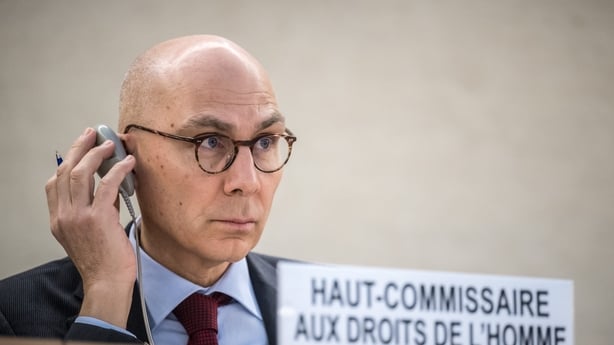
What happens if the Human Rights Council passes the resolution today?
If the Human Rights Council adopts the resolution, it will increase “psychological and political pressure” on countries that currently export arms to Israel, according to diplomatic sources.
The resolution would build on existing Security Council and General Assembly resolutions adopted since the conflict began on 7 October, as well as the interim ruling of the International Court of Justice, issued in January, which ordered Israel to take provisional measures to prevent acts of genocide and ensure humanitarian access to the population of Gaza.
Decisions like these taken by UN bodies raise the stakes for arms exporting nations facing legal action domestically, legal experts told RTÉ News.
In February, a Dutch court ordered the government to cease all exports of F-35 fighter jet parts to Israel over concerns they could be used to violate international law.
Japan, Spain, Japan, Canada and Belgium have also suspended arms sales.
Lawyers in Germany, which is second only to the United States in terms of weapons sales to Israel, filed charges against senior German politicians alleging they are “aiding and abetting war crimes” and “genocide”.
Germany will face charges at the International Court of Justice next week in a suit brought by Nicaragua, alleging Germany to be in violation of its obligations under the Genocide Convention over weapons sales and the suspension of funding to the UN’s Palestinian Refugee Agency (UNRWA).
The UK government is also facing mounting pressure after 600 lawyers wrote to Prime Minister, Rishi Sunak, this week warning that his government could be in breach of international law over its arms exports to Israel.
How will Israel react to the Human Rights Council decision?
Israel will likely reject the resolution and remain highly critical of the Human Rights Council which it sees as deeply biased against it.
A permanent feature of the Council’s agenda – Item 7 – is entitled the “human rights situation in Palestine and other occupied Arab territories,” and the Council votes on this issue every year.
Israel says that it is unfairly targeted by the Human Rights Council while other member states accused of human rights abuses are not subject to the same level of attention or scrutiny.
UN Watch, an pro-Israel NGO, accuses the Council of being “obsessed with demonising Israel” while granting impunity to the “world’s worst regimes, adopting zero resolutions on gross human rights abuses perpetrated in, among others, Algeria, China, Cuba, Egypt, Gaza, Iraq, Pakistan, Turkey, and Zimbabwe.”
Israel dismissed the recent report by Francesca Albanese, the independent expert appointed by the UN Human Rights Council to monitor the human rights situation in the Occupied Palestinian Territories, which found “reasonable grounds” to believe the threshold for genocide had been met. Ms Albanese called on UN member states to “abide by their obligations which start with imposing an arms embargo and sanctions on Israel”.
Israel called the report “an obscene inversion of reality”.
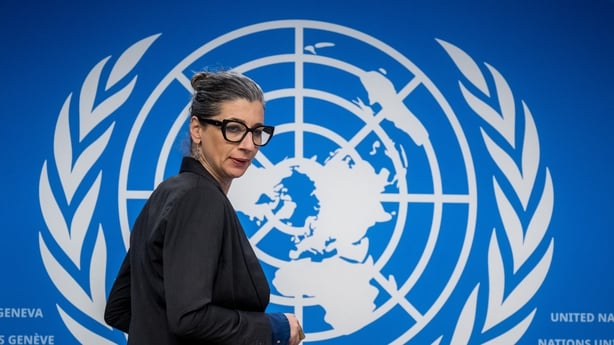
Criticism of the Human Rights Council
The Human Rights Council has come in for criticism from NGOs such as Human Rights Watch and Amnesty International over the election of authoritarian regimes and what they call “known human rights abusers.”
On the recent election of China, Burundi and Cuba Human Rights Watch said: “their abysmal rights records should have disqualified them,” and called on other members to “work to counter the anti-human rights agenda of this trio of abusers and their allies as member countries have done successfully in the past.”
Russia was ejected from the Human Rights Council following its full-scale invasion of Ukraine in 2022 and was unsuccessful in seeking re-election last year.
Critics also say that countries will often try to pressure other member states into supporting them during the universal periodic review in a bid to whitewash their human rights records.
But proponents of the body say it is the only forum dedicated to discussing and upholding universal human rights within the UN’s multilateral system.


